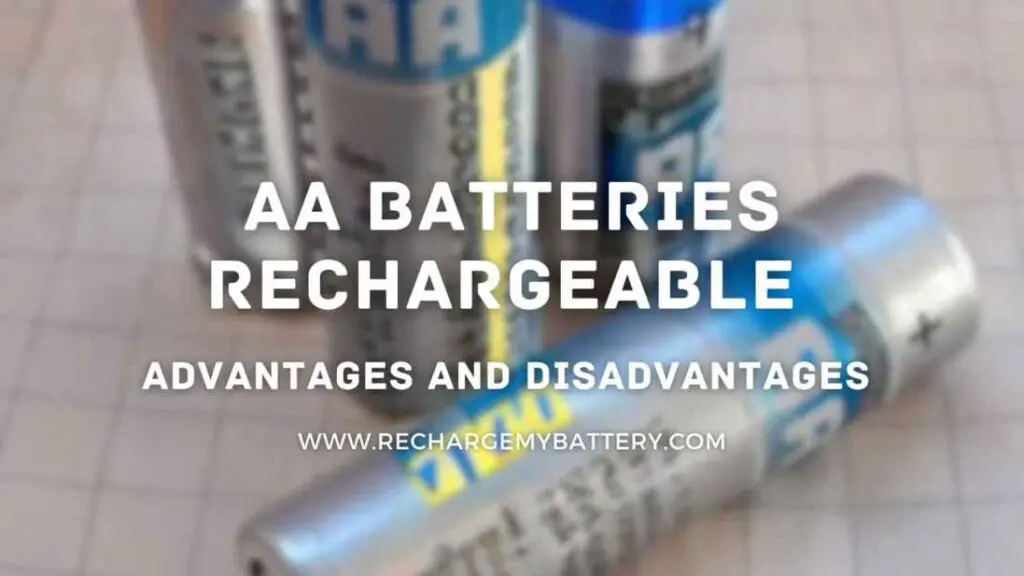In today’s world, hearing aids have become essential devices for individuals with hearing impairments. These remarkable devices enable people to regain their ability to hear and actively participate in conversations and daily activities. One crucial component of hearing aids is the battery that powers them. Traditional disposable batteries have been widely used in hearing aids, but now, rechargeable batteries are revolutionizing the industry. This article explores the world of rechargeable batteries for hearing aids, highlighting their advantages, benefits, and frequently asked questions.
The Rise of Rechargeable Batteries for Hearing Aids
As technology advances, so does the evolution of hearing aids. In recent years, rechargeable batteries have gained significant popularity among hearing aid users. These innovative batteries offer a convenient and eco-friendly alternative to traditional disposable batteries. With rechargeable batteries, users no longer need to constantly purchase and replace disposable batteries, reducing waste and saving money in the long run.
Understanding Rechargeable Battery Technology
Rechargeable batteries for hearing aids utilize advanced technology to provide a reliable power source. Most commonly, they employ Lithium-ion (Li-ion) or Silver-Zinc (AgZn) chemistry. Li-ion batteries are known for their high energy density, long cycle life, and low self-discharge rate. On the other hand, AgZn batteries offer excellent energy capacity and are safe for air travel. Both options provide dependable performance, ensuring that hearing aid users can rely on their devices throughout the day.
Benefits of Rechargeable Batteries
Rechargeable batteries bring forth a multitude of benefits for individuals using hearing aids. Here are some key advantages:
1. Extended Battery Life
Rechargeable batteries for hearing aids typically offer longer usage times compared to disposable batteries. This extended lifespan ensures that users can confidently wear their hearing aids without the fear of sudden battery depletion.
2. Cost-effectiveness
While the initial investment for rechargeable batteries may be higher, they prove to be cost-effective in the long run. Users no longer need to purchase disposable batteries repeatedly, resulting in significant savings over time.
3. Convenience and Simplicity
With rechargeable batteries, the hassle of regularly changing batteries diminishes. Users can simply place their hearing aids in a charging station or connect them to a charging cable, eliminating the need for battery replacement and minimizing interruptions in daily life.
4. Eco-friendly Solution
Disposable batteries contribute to environmental waste due to their single-use nature. Rechargeable batteries reduce waste and minimize the environmental impact, making them a greener choice for conscientious users.
5. Enhanced Device Performance
Rechargeable batteries provide a stable and consistent power supply to hearing aids. This ensures that the devices maintain optimal performance, delivering clear and crisp sound quality throughout the battery’s life cycle.
Rechargeable Batteries vs. Disposable Batteries
The debate between rechargeable batteries and disposable batteries for hearing aids has gained significant attention. While both options have their merits, rechargeable batteries offer distinct advantages:
| Rechargeable Batteries | Disposable Batteries |
|---|---|
| Cost-effective in the long run | Lower upfront cost |
| Convenient and hassle-free | Require frequent replacement |
| Eco-friendly and reduce waste | Contribute to environmental pollution |
| Extended battery life | Limited usage time |
| Consistent and reliable power supply | Risk of sudden battery depletion |
Factors to Consider When Choosing Rechargeable Batteries
When selecting rechargeable batteries for hearing aids, several factors come into play. Consider the following aspects to make an informed decision:
- Compatibility: Ensure that the rechargeable batteries are compatible with your specific hearing aid model. Some hearing aids may require specific battery types or sizes.
- Battery Life: Look for batteries with longer usage times to minimize the need for frequent recharging during the day.
- Charging Options: Check the available charging methods and select the one that aligns with your lifestyle. Options may include charging stations, USB cables, or portable charging cases.
- Battery Capacity: Consider the capacity of the rechargeable batteries. Higher capacity batteries provide longer usage times, but they may also be larger in size.
- Manufacturer Recommendations: Follow the manufacturer’s recommendations regarding charging protocols and battery maintenance to ensure optimal performance and longevity.
How to Maximize the Lifespan of Rechargeable Batteries
To maximize the lifespan of rechargeable batteries for hearing aids, follow these guidelines:
- Avoid Deep Discharges: Avoid completely draining the battery before recharging it. It is best to recharge the battery when it reaches around 20-30% capacity.
- Store in a Cool Place: Store your rechargeable batteries in a cool and dry place, away from direct sunlight or excessive heat. High temperatures can affect battery performance and lifespan.
- Regular Charging: Establish a routine charging schedule for your batteries. Consistently charging them will help maintain optimal performance and extend their overall lifespan.
- Follow Manufacturer Guidelines: Adhere to the manufacturer’s guidelines regarding charging protocols and maintenance. Each brand may have specific recommendations to ensure the best performance.
Best Practices for Charging Rechargeable Batteries
To ensure efficient and safe charging of your rechargeable batteries, follow these best practices:
- Use Manufacturer-Approved Chargers: Utilize chargers specifically designed for your hearing aid’s rechargeable batteries. Using unauthorized chargers may affect battery performance and safety.
- Avoid Overcharging: Do not leave your batteries connected to the charger for an extended period. Overcharging can impact the battery’s lifespan and overall performance.
- Follow Charging Time Recommendations: Adhere to the recommended charging time provided by the battery manufacturer. Charging within the suggested time frame helps maintain battery health and longevity.
- Unplug After Full Charge: Once your batteries are fully charged, disconnect them from the charger to prevent overcharging or potential damage to the battery cells.
Overcoming Common Concerns
What if I forget to charge my batteries?
Rechargeable batteries often have longer usage times, reducing the frequency of charging. However, if you forget to charge them, some rechargeable batteries offer quick charging options, allowing you to charge them for a short period and still receive enough power to last several hours.
Are rechargeable batteries safe?
Yes, rechargeable batteries for hearing aids are safe when used properly and following the manufacturer’s guidelines. They undergo rigorous testing to ensure compliance with safety standards and provide reliable performance.
Can I travel with rechargeable batteries?
Rechargeable batteries, particularly those with Lithium-ion or Silver-Zinc chemistry, are generally safe for air travel. However, it is advisable to check with your airline beforehand to confirm their specific guidelines and regulations.
Do rechargeable batteries perform as well as disposable batteries?
Rechargeable batteries offer comparable performance to disposable batteries. Advancements in technology have made rechargeable batteries reliable and efficient, ensuring that hearing aids operate optimally throughout the battery’s life cycle.
Can I switch from disposable to rechargeable batteries?
In most cases, hearing aids can be retrofitted to support rechargeable batteries. Consult with your hearing healthcare professional to determine if your device is compatible and can be modified to utilize rechargeable batteries.
Do rechargeable batteries have a memory effect?
No, modern rechargeable batteries do not suffer from the memory effect commonly associated with older rechargeable battery technologies. They can be charged at any time without affecting their overall capacity or performance.
Are Rechargeable Batteries Suitable for All Hearing Aids?
Rechargeable batteries are compatible with various types and models of hearing aids. However, it is essential to verify the compatibility of your specific hearing aid with rechargeable batteries. Consult with your hearing healthcare professional or refer to the manufacturer’s guidelines for accurate information regarding your device.
Exploring the Top Rechargeable Battery Brands
Several reputable brands offer rechargeable batteries for hearing aids. Here are a few prominent names in the industry:
- Energizer: Known for their reliable and long-lasting batteries, Energizer offers rechargeable options that deliver consistent power to hearing aids.
- PowerOne: PowerOne rechargeable batteries are renowned for their high-quality performance and compatibility with a wide range of hearing aid models.
- ZPower: ZPower specializes in rechargeable battery solutions for hearing aids, offering convenience and extended battery life.
- Rayovac: Rayovac rechargeable batteries provide excellent performance and durability, ensuring long-lasting power for hearing aids.
Frequently Asked Questions (FAQs)
Q1: How long do rechargeable batteries for hearing aids last?
Rechargeable batteries typically provide a full day of usage on a single charge. However, battery life can vary depending on factors such as hearing aid power consumption and the battery’s capacity.
Q2: Can I use disposable batteries in a hearing aid designed for rechargeable batteries?
Yes, many hearing aids designed for rechargeable batteries can also be used with disposable batteries. However, it is essential to check the compatibility and requirements of your specific hearing aid model.
Q3: Are rechargeable batteries for hearing aids environmentally friendly?
Yes, rechargeable batteries contribute to a more sustainable environment by reducing waste generated from disposable batteries. They help minimize the ecological impact associated with single-use batteries.
Q4: How much do rechargeable batteries for hearing aids cost?
The cost of rechargeable batteries for hearing aids varies depending on the brand and model. While the initial investment may be higher, the long-term cost savings make rechargeable batteries a cost-effective choice.
Q5: Can I charge rechargeable batteries overnight?
Charging rechargeable batteries overnight is generally safe, especially when using manufacturer-approved chargers. However, it is recommended to follow the manufacturer’s guidelines to ensure optimal battery performance and safety.
Q6: Can I travel by plane with rechargeable batteries for my hearing aids?
Yes, most rechargeable batteries, including Lithium-ion and Silver-Zinc types, are safe for air travel. However, it is always advisable to check with the airline to comply with their specific regulations.
Conclusion
Rechargeable batteries have emerged as a game-changer in the world of hearing aids. They offer extended usage times, cost-effectiveness, convenience, and environmental benefits. By understanding the technology, advantages, and considerations associated with rechargeable batteries for hearing aids, users can make informed decisions and unlock the power of long-lasting performance. Embrace the freedom and reliability that rechargeable batteries bring to your hearing aid journey.

